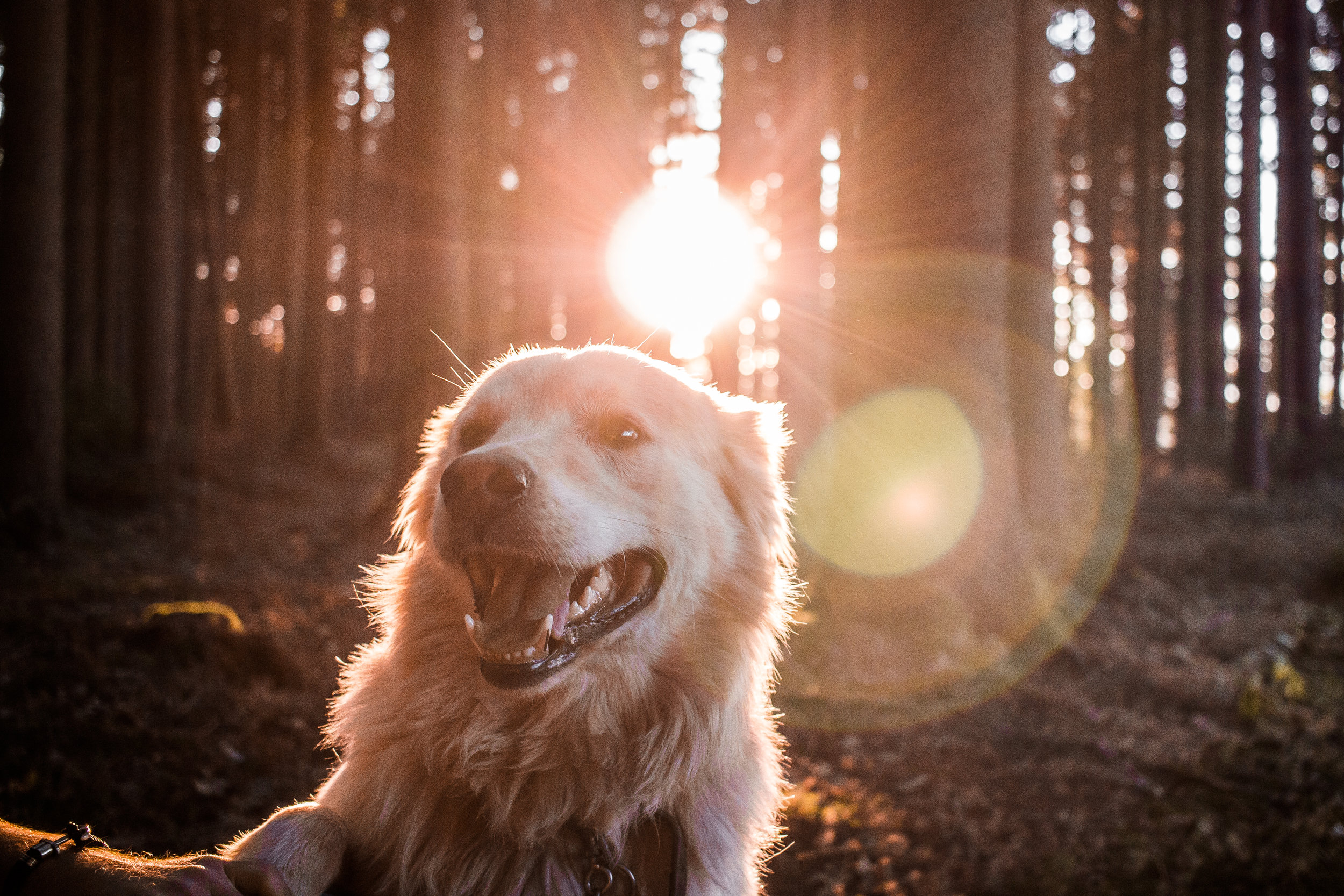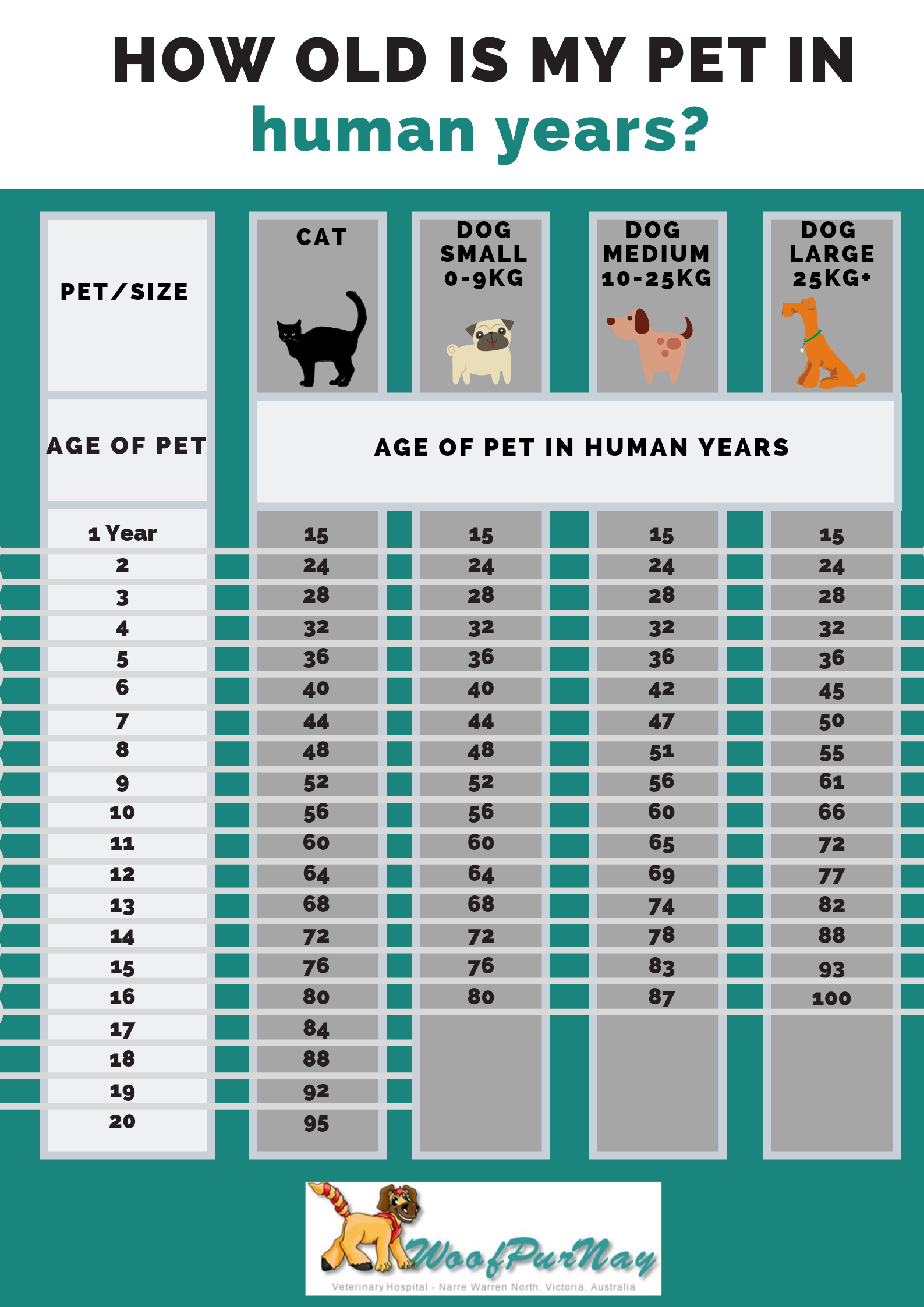How old is my pet in human years?
We have all heard the calculation that one dog year is equal to seven human years. However, there is a bit more to the story.
Your dog’s size and breed play a significant role in calculating their human age. Smaller dogs tend to outlive larger dogs.
Dogs and cats also mature more in the first two years of their life, with their first year equal to about 15 years and their second approximately 9 years of human life.
Cats generally have a longer life expectancy than dogs.
To help simplify the calculation, we have created a chart that converts your pet’s age to human years.
Average life expectancy of dogs and cats
Cats generally live longer than dogs with an average life expectancy of a domestic indoor cat between 12 to 18 years, however it isn’t uncommon for them to live to 20. Outdoor cats generally live shorter lives, as they are more susceptible to outdoor traumas and life threatening viruses.
As you can see by the chart, the average life expectancy of a dog varies depending on their size and breed. Smaller dogs can often live between 15-16 years, medium to large sized dogs 10-13 years, whilst giant breeds may only live between 7-8 years.
Helping your pet live a happy, healthy life
Here are a few tips to help keep your pet happy, healthy and youthful for as long as possible.
Regular exercise - that is in-line with your pet’s capabilities. Your vet may advise gentle walks if your dog is overweight or swimming as a therapy for dogs with arthritis. General playtime is also a great form of exercise.
A complete and balanced diet - is essential for your pet’s health and wellbeing. Older pets often have specific nutritional requirements and may benefit from specially formulated food. Senior pets are also generally less active than younger pets so may benefit from a lower energy, high fibre diet.
Preventative healthcare - is critical including yearly vaccinations, parasite control and regular visits to the vet. Twice yearly health checks are recommended for senior pets to ensure early detection and treatment of disease.
Dental health - look after your pets teeth by regularly brushing them or have your pets teeth cleaned professionally on the advice of your vet.
De-sexing or neutering – many pet owners have their animal de-sexed or neutered to prevent unplanned pregnancies and control the animal population. De-sexed animals are also generally less likely to get certain diseases such as mammary tumours, uterine infections, testicular cancer and prostate problems. De-sexing can also help with behavioural issues such as roaming, aggression and urine territory marking in males.
Enjoy every moment – the sad part of pet ownership is that humans generally outlive their pets. There are no miracle cures that guarantee to extend your pets life beyond its natural breed lifespan. However, enjoy your precious time together, maintain healthy habits, keep your pet active and provide lots of love and attention and you may be able to give your pet a few extra years.
If you have any questions about your senior pets’ health, please give us a call on 03 8784 4444.



